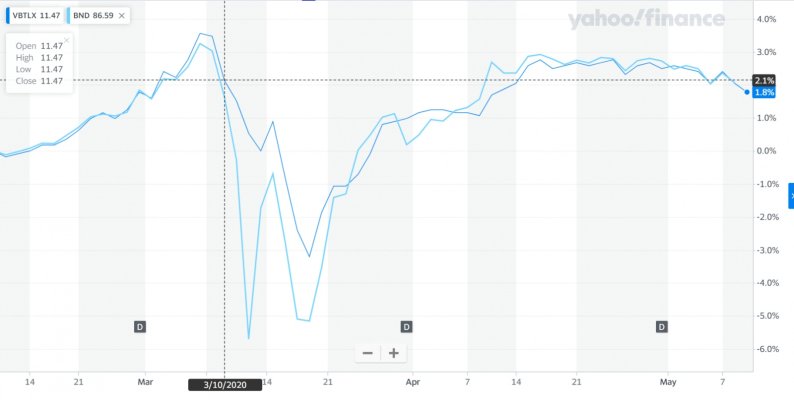One of the statements I have heard him say a few times "If someone claims that they have a strong feeling about a financial event about to appear, the safe thing to do is not to believe them"
Love this quote, and it applies to this thread as well. After reading the whole thing, and then going back and re-reading the original post, the OP is *not* even asking a question. She just stated her position, including her opinions about the state and future of the market:
"I have never been a market timer but there is something about the market now that just does not seem right to me."
"I don't see anything good to come in the near future..."
I think that this is the reason so many have addressed the 'market timing' aspect of this. It's one thing to adjust one's AA based on a shifting risk tolerance. But it also means that you didn't have your risk tolerance dialed in, or sorted out.
"at my age I just decided to not take any more risks."
Most financial advice I have seen lays out a road map of AA based on risk and age. As you move from young and employed to older and retired, you shift from equities to fixed investments. Not because of events, but because of a plan/schedule. Anything else really is fear-based and generally does not work out well. Hopefully you can get your AA and risk tolerance all sorted out and make future moves on a more calm, rational basis.

It's the issue that the stock market from the Great Depression took 29 years to recover, I don't think I have that long....

We do not live in a world where the economy and financial markets resemble, in any way, those of a century ago. Why use that as a measuring stick?
77% staying the course (so far) - thank you for posting that poll. Funny, no one ever starts a thread about "hey, I'm not changing anything - what do you all think?" LOL
I was lucky I sold everything I could without tax consequence before the virus hit. I just looked at the years and years of gains and thought it’s enough. My target buy back is when the s&p hits 30% off all time highs. I believe it’s coming, but if it doesn’t that’s ok too.
I saw that another poster mentioned that the S&P hit 34% off the highs and asked if you got back in. Didn't see an answer, maybe I missed it? Just curious...


